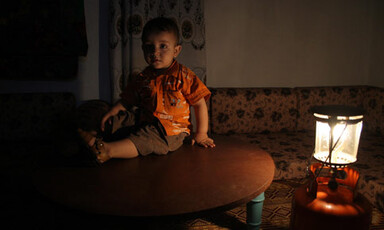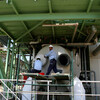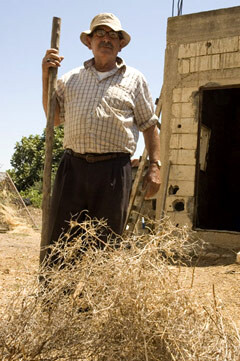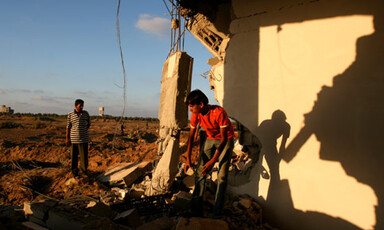
In Gaza's darkness, life goes on
Gaza Strip 22 August 2007
On Tuesday, Gaza was plunged into complete isolation and darkness as the electricity was cut off. It was like being in the stone age; movement was paralyzed during the day and there was total blackout at night. When there is no power, there is also no water: most houses use electricity to pump water up to their roof tanks. Muhammad, six, and his little sister had to carry water bottles home because they had no household supply. EI’s correspondent in Gaza, Rami Almegari reports. Read more about In Gaza's darkness, life goes on








